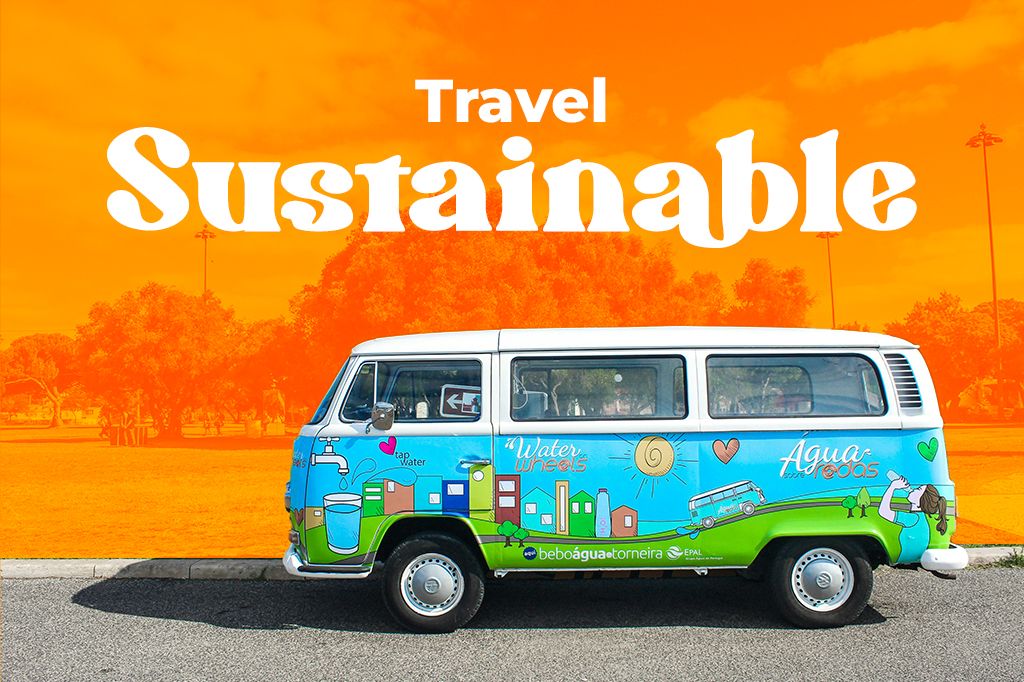Traveling is the perfect activity because it involves exploring the world and experiencing new cultures. It also offers the thrill of going on new exciting journeys. However, travel can hurt nature and local communities. This is where eco-friendly travel comes into play. But what is the meaning of sustainable travel? Let’s explore how we can travel in a way that helps nature and makes a difference.

Picture by Vanessa Lee on Unsplash
In this article:
- What is the Meaning of Sustainable Tourism? Why It Matters
- Travel Sustainability Levels Explained
- What are the Benefits of Sustainable Travel?
- How to Become a Sustainable Traveler?
- FAQs
What is the Meaning of Sustainable Tourism? Why It Matters
Eco-friendly travel, also known as “sustainable tourism,” “eco-travel,” or “ecotourism,” is about traveling in a way that protects the environment and helps local communities. In simple words, it involves making smart travel choices that are good for the planet and local cultures. This includes protecting nature, preserving cultural traditions, and supporting local economies. It also means being aware of travel impacts, avoiding overcrowded places, and choosing green places to stay. By doing this, we help ensure that future generations can enjoy the world’s beauty.
If you are planning your next vacation, you might also be interested in 5 Travel Tips for Holiday Happiness.
Travel Sustainability Levels Explained
Understanding the levels of travel sustainability can help travelers make informed choices. Many platforms like Booking.com offer eco-friendly travel actions under different groups:
What is the meaning of travel sustainable level 1?
Sustainable travel at Level 1 includes basic actions such as cutting waste, saving water, and buying locally. These simple steps help reduce our impact on nature and support local economies. By being mindful of these practices, travelers can make a positive impact even with small changes.
What does travel sustainable level 2 mean?
Sustainable Travel Level 2 involves more advanced actions, such as using green energy, supporting eco-friendly travel initiatives, and helping local projects. It goes beyond basic eco-friendly practices to include proactive efforts that reduce environmental impact and boost community well-being.
What is travel sustainable level 3?
Level 3 sustainable travel is the highest level of eco-friendly tourism. It covers every aspect of a trip, from staying in eco-friendly hotels to supporting local businesses and being mindful of your carbon footprint. It’s about traveling responsibly without sacrificing new experiences.

What are the Benefits of Sustainable Travel?
Sustainable travel is crucial because it not only benefits the environment but also supports local people and preserves cultural heritage.
- Saves Natural Homes: Eco-friendly travel practices can reduce damage and minimize the impact on natural areas.
- Supports Local People: It is beneficial for local people because it helps local businesses and respects the cultural heritage of host communities.
- Lowers Over-Tourism: It stops overcrowding, which stresses local resources and harms natural environments.
- Preserve Resources for Future Generations: By saving nature, we ensure that future generations can also enjoy these beautiful places.
- Teach and Raise Awareness: Ecotourism offers many benefits, including educating travelers about the environment and fostering respect for local cultures. This raises a sense of responsibility and aids in conservation efforts.

Economic and Cultural Effects of Sustainable Travel
There are clear economic and cultural benefits of eco-friendly travel:
- Supports Local Economies: For example, travelers can help the local economies by choosing places to stay and restaurants owned by residents.
- Preserves Cultural Traditions: Respecting and taking part in local customs helps preserve cultural heritage.
- Saves Local Wildlife and Natural Resources: Taking part in eco-friendly activities aids in the conservation of local fauna and natural resources, thus keeping the right ecological balance in a specific area.

How to Become a Sustainable Traveler?
Sustainable travel means being mindful of the decisions you make during your journey. Below are some advice you can follow along with a few examples of sustainable tourism:

- Select Sustainable Destinations: First, choose destinations known for their commitment to preserving nature.
- Fly Less: Opt for trains or buses over planes to reduce your carbon footprint.
- Choose Eco-Friendly Places: Choose hotels or places to stay managed by local people who prioritize sustainable tourism practices.
- Engage in Wildlife Tourism Responsibly: Take part in tours and activities that place a strong emphasis on animal welfare and respect their natural habitats.
FAQs
What is the meaning of sustainable travel?
Sustainable tourism includes making careful choices that help nature or local environments, rather than causing harm. It’s not just choosing to preserve them; it’s mainly about protecting nature and culture.
What does the sustainability level of travel mean on Booking.com?
On Booking.com, the term “sustainability level” means the extent to which accommodations adhere to sustainable practices. It goes from basic green initiatives (level 1) to detailed sustainable measures (level 3).
What is a sustainable property?
An eco-friendly travel property is a place to stay that reduces its environmental footprint by efficiently using power and water resources, reducing waste generation, and supporting local initiatives.
What does ‘travel-sustainable’ mean for hotels?
For hotels to be considered ‘travel-sustainable,’ they must actively engage in eco-friendly practices. They should focus on preserving natural resources, such as using green, renewable energy, saving water, and handling waste disposal within the hotel. Also, they should contribute to the local economy by offering job opportunities.
